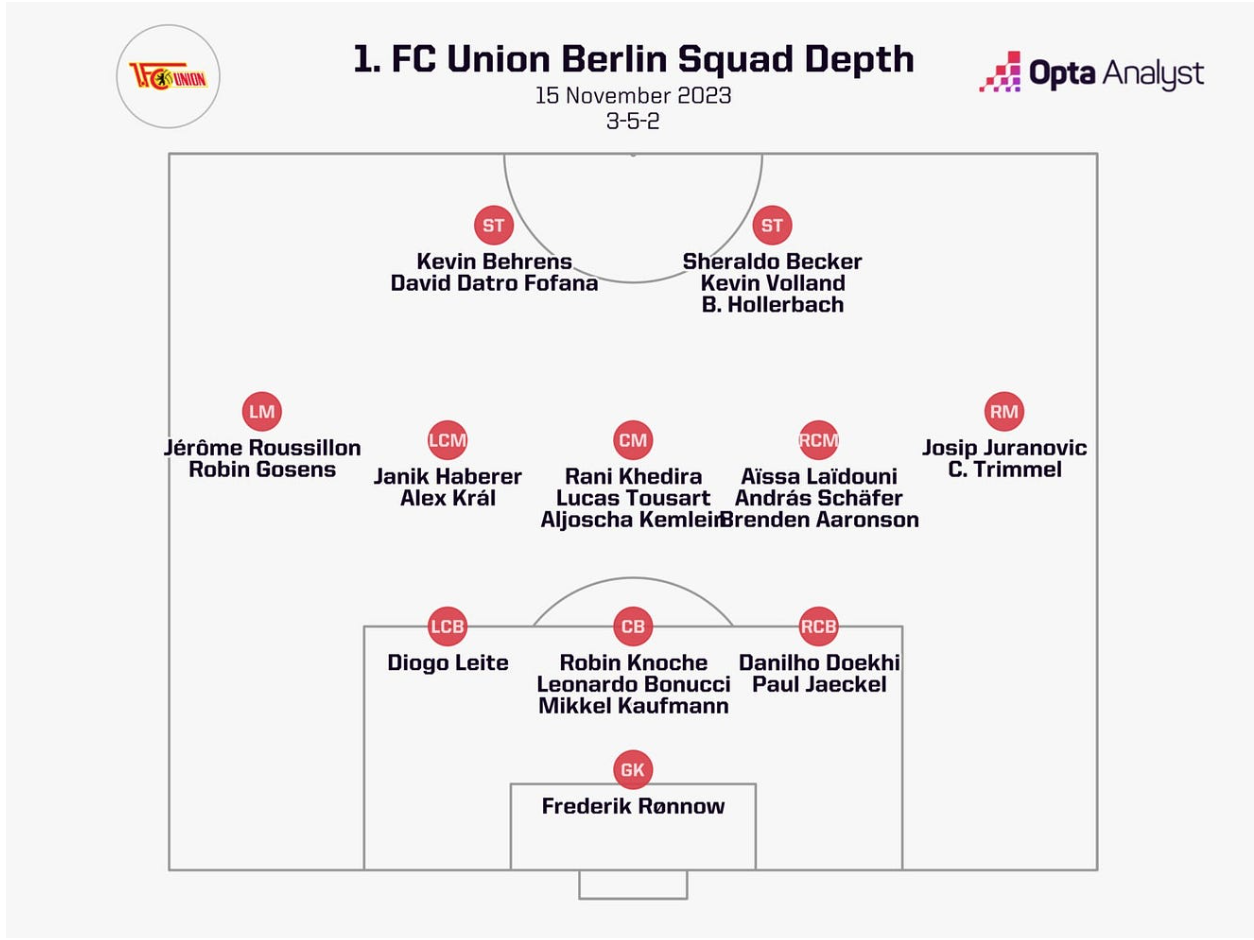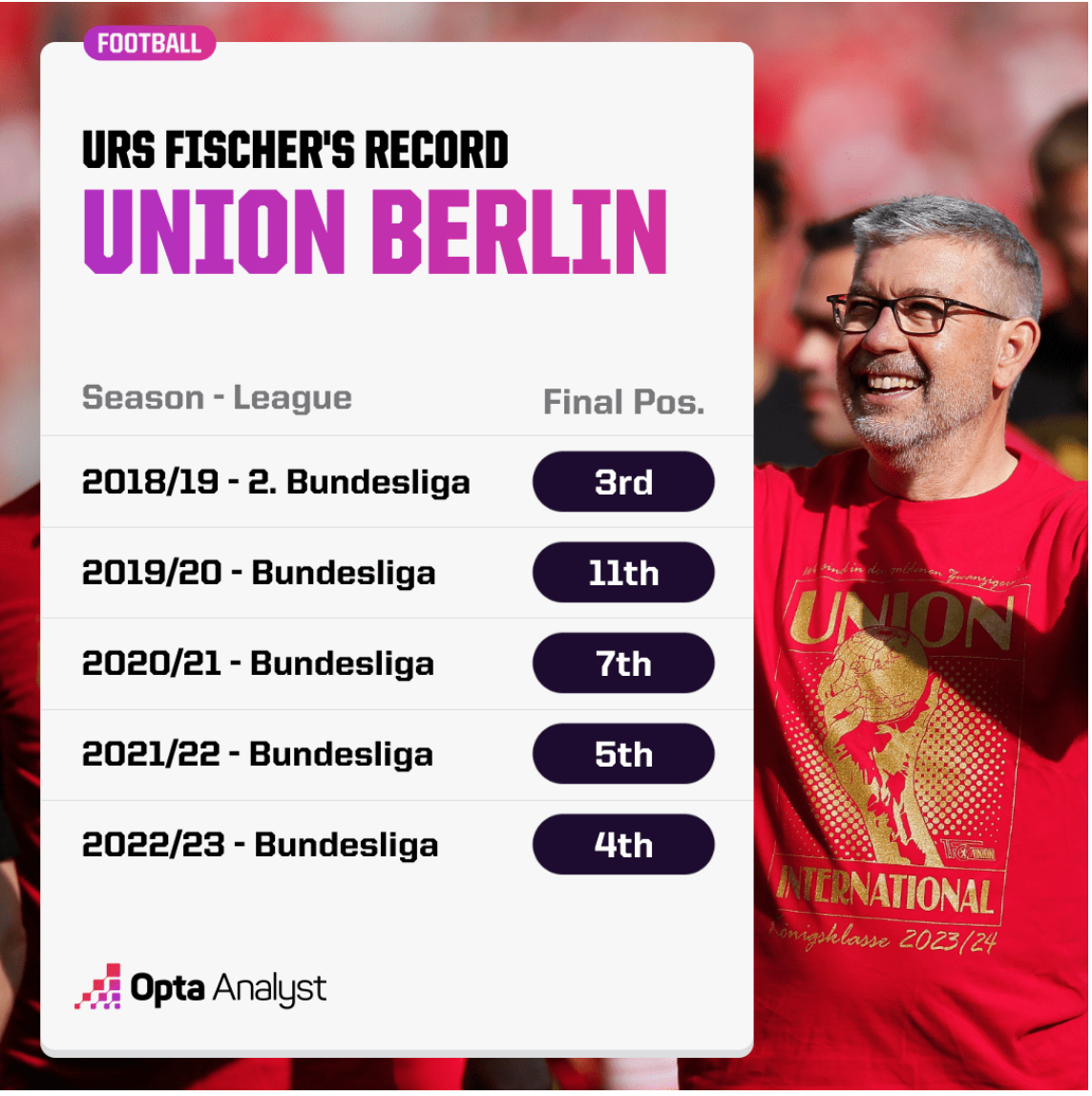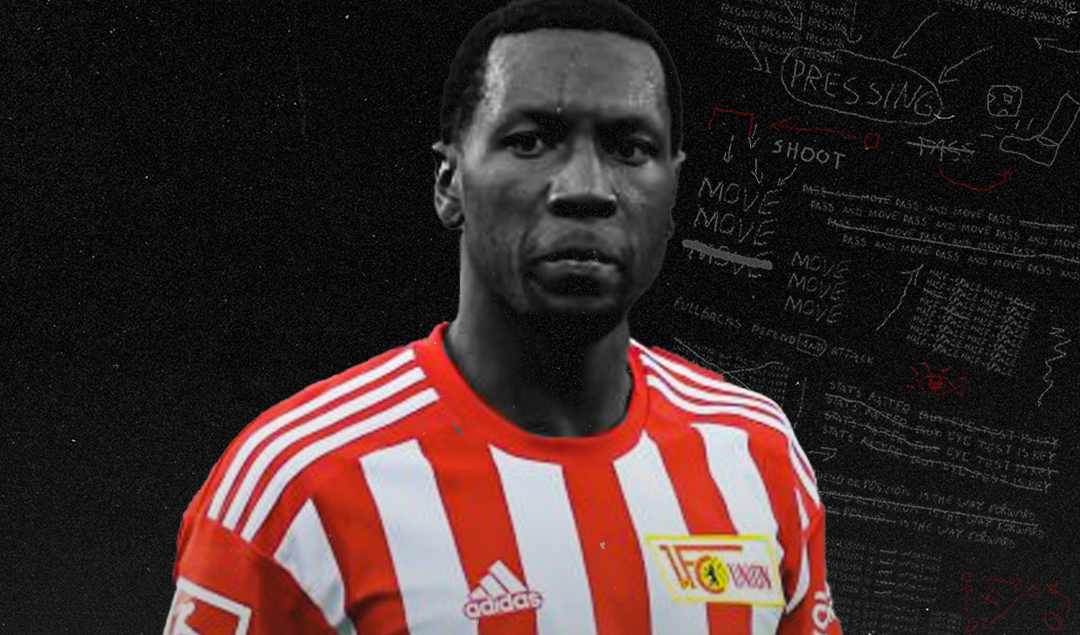Union Berlin: To Hell and Back
Union Berlin has been a storied club since time immemorial. German football has never lacked for heartburning tales. This season, Bayer Leverkusen’s fairytale campaign dominated the headlines. Of course, there is Bayern’s misery & Dortmund’s breakthrough. Germany’s merry go-round was completed by the miracle workers in Kaiserslautern & Saarbrücken.
However, Union is no stranger to going so far as a lower-tier club. The mad lads qualified for Europe before they ever played in the Bundesliga! But that’s not even the half of it. Few clubs can boast of Champions League football, surviving three managers, and battling relegation — in one season.
Last Saturday was the grand finale of Union’s rollercoaster season. It was a blockbuster showdown in Berlin as Union hosted SC Freiburg. Compared to Leverkusen’s title party, this match was as high stakes as they come. Union had an early chance from the penalty spot, but Josip Juranović’s effort was thwarted.
By halftime, the home side was headed for a possible relegation. That was until Brenden Aaronson found Benedict Hollerbach on the edge of the box; Hollerbach set the house on fire with a powerful screamer. Freiburg later pulled one back from Ritsu Doan’s header. It was going down to the wire. And then a miracle … Union won a penalty in injury time.
Kevin Volland stepped up to put the relegation woes to bed; and he missed. But fate was kinder this time. Janik Haberer buried the rebound to win the game. It was all over. With the slightest shave, Marco Grote’s men had avoided the drop zone. Thanks to Bochum’s slip-up, Union had evaded any chance of relegation. Both teams finished level on points (33 pts), but Union pulled through with a higher goal difference (-25).
You may be wondering: How does a Champions League club end up in the bottom four? For the lack of a better word, Union Berlin is a unicorn. Unlike most of their Champions League peers, Union came from humble beginnings. This club was built on the back of the working class in Köpenick, Berlin — where the Capital of East Germany once stood.
How Union Berlin Sealed European Football for the First Time Ever
However, Union’s notoriety predates the Berlin Wall. Back in the day, Union donned a blue colorway, akin to the work outfits prominent in the Industrial Oberschöneweide district. For their quirky taste, they received the nickname, “Schlosserjungs” (“metalworker-boys” in English).
The name stuck; after all, Union was established in the nerve center for factory workers in Berlin. As such, the founding principle of the club was to be a working man’s club. This was what Herbert Warnke, who fought to establish the club in the ’60s, envisioned as the Union way. And it still is.
Union has never shied from its deeply-rooted tradition. In its early days, the Köpenick outfit enjoyed the patronage of Berlin’s SED officials. Today, the support base is not as prominent, but just as sturdy. Amidst their financial woes, Unioners pulled through with the “Bleed for Union” blood drives. When the club sorely needed a stadium upgrade, it was the fans who whipped out the hammers and got to work.
German Football’s age-old “50 + 1” rule has allowed the club to thrive under these conditions. Except for Wolfsburg and Bayer Leverkusen, the affairs of German clubs are effectively run by the fans.
“One of the things you have to understand is that sport in this country is not part of the entertainment industry” – German author Uli Hesse.
Unlike the capital-intensive setups abroad, German football is less prone to overbearing investors. German Football Clubs are not show dynasties but actual public clubs. In essence, each club strives to be an institution where every member can make an impact.
Union Berlin is the perfect embodiment of this ideology. Fierce loyalty and communal mutualism is the core theme of the club’s ethos — as it should be in football. Fortunately, this way of life attracts the right personnel to Union.
Swiss coach, Urs Fischer — not to be confused with Swiss artist, Urs Fischer — joined the club in 2018. That same season, he guided Union to the Bundesliga for the first time ever. But that was only the tip of the iceberg.
You see, Fischer was tailor-made for Union. His brilliant methods emphasized several hardcore principles: A stern defensive setup that hits hard on the counterattack. Stretching the opponents with wide fullbacks. Fluid passing combinations. Exploding transition shifts. Long ball distribution.
Safe to say, Fischer’s style was a hit in the top flight. Die Eisernen qualified for the Europa Conference League in their second Bundesliga campaign. Despite a group-stage elimination, they qualified for Europe once again — this time, the Europa League.
Union had better luck in the Europa as they reached the Round of 16 – where they lost to Union Saint-Gilloise. But that didn’t deter them from breaking into Germany’s top 4 — and qualifying for the Champions League.
“I still can’t really explain it. It’s madness,” – Christopher Trimmel, club captain and longest-serving player.
But the real madness was what came after. Union opened her doors to new names. Alex Král, Davide Datro Fofana and, Brenden Aaronson joined the club on loan deals. Former Italy & Juventus captain, Leonardo Bonucci, joined on a free transfer. Kevin Vogt & Alexander Schwolow followed suite.
Robin Gosens stole the headlines with a club-record transfer from Inter. Mikkel Kaufmann, Diogo Leite, Lucas Tousart, Chris Bedia, Yorbe Vertessen, and Kevin Volland all trooped in on bargain deals.

Photo: Opta Analyst
The air around Köpenick was different — Union Berlin was ready for the Champions League. Bundesliga’s opening weekend had all the makings of a varsity game. Union’s next game was away at Darmstadt. Despite a red card for Brenden, it was another 4–1 buffet.
Fischer’s men left no traces — Laïdouni, Doekhi, and Behrens all shined that afternoon. Gosens helped himself to a couple of goals in his debut start, while Juranović grabbed two assists. Returning to Köpenick for a routine trench duel versus Leipzig was exciting. However, the result was anything but.
The game saw another red card for a Union attacker — Kevin Volland this time. After holding out for the first half, Union slumped to a 3–0 defeat — their heaviest home defeat in over a year. Sadly, there would be more to come. The next game was a 2–1 loss at Wolfsburg’s Volkswagen arena. After starting on such a high note, Union Berlin was in a chokehold.
Robert Andrich: From Germany’s Third Tier to Invincibility at Leverkusen
Despite the rough patch, Unioners held on tight for their toughest test yet — a trip to the Santiago Bernabéu. The Germans defended deep and weathered the storm of attacks in Madrid. That was until Fede Valverde’s shot spilled to Jude Bellingham in the 94th minute.
By the next UCL matchday, Union’s situation was no better. They sank further in the league, with losses to Hoffenheim & Heidenheim. Yet, they still had more Champions League football to look forward to.
Due to UEFA regulations, Union had to make do with the home ground of city rivals, Hertha Berlin. The city of Berlin hosted a UCL game for the first time in the 21st century. It was a block party and Sporting Braga was the first guest.
A Betzenberg Story: Kaiserslautern’s Imprint on the Beautiful Game
That night, Sheraldo Becker’s double was warmly received with ‘Eisen Union’ chants across the Olympiastadion. But Union slipped up yet again, conceding the last of 3 goals in the 94th minute. It was the 6th loss in a row for Die Eisernen.
Panic was setting in. Union lost another round of league matches to Dortmund & Stuttgart. The UCL bout with Napoli ended in a one-nil loss. At Werder Bremen, Robin Knoche’s own goal and Rani Khedira’s red card sealed a 2–0 defeat.
The next game? Stuttgart knocked out Die Eisernen in the DFB Pokal. Frankfurt’s trip to the capital completed the nightmare — 12 losses in a row.
Union Berlin had hit rock bottom. They were last place in the league and knocked out of the cup. What had started as a Champions League party was now a relegation battle. Another bashing from Leverkusen was enough to call the banners. Something had to give.
“The last few weeks have taken a lot of energy. We tried a lot, the team put in a lot, but it didn’t pay off in results. I am very grateful for the trust that I have always felt here” – Urs Fischer’s last words as coach.

Photo: Opta Analyst
The Football Manager of the Year got the ax. Union appointed former player, Marco Grote, as interim coach alongside Marie-Louise Eta. The pair did enough to break the losing streak. After that game, ex-Trabzonspor coach, Nenad Bjelica took charge of Union. Bjelica finally steered Union to a long-awaited victory in December.
Real Madrid visited the Olympiastadion for the last dance. With a win, Union could qualify for the Europa League ahead of Braga. However, the Germans’ overarching theme repeated itself. Despite taking a first-half lead, Union fell to a series of late goals.
In the last game of the year, Die Eisernen beat Koln to rounds of applause from the home crowd. Surviving the wax and wanes of the year left the Unioners grateful. Yet, the winter break did little for a resurgence. All Union could do was fight and grind for every point. Every match at home was a battle for dear life — only three teams beat them at home after January.
Union’s luck didn’t improve though. Losing to relegation rivals, Bochum, at home left them gasping for air. With two games left to play, Bjelica was sacked. Marco Grote returned to the dugout for the final lap. Union Berlin won only one of their last 13 games. And that one win? It was the closing weekend against Freiburg.
Thankfully, Köpenick’s brutal storm has passed. Union Berlin’s season leaves a sour taste, but the Schlosserjungs live to fight another day.
By Ayomi
Featured Image: @Juanffrann – Martin Rose / Getty Images
